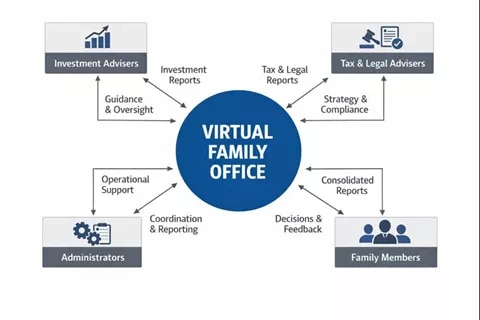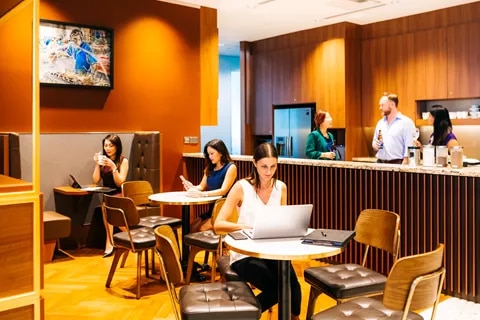
The Return-to-Office Reality in Singapore
Singapore's business world is at a turning point in 2025. Companies are trying to bring workers back to the office while corporate employees still want the flexibility they discovered during the pandemic.
According to the Ministry of Manpower, around 80% of Singapore employers have implemented hybrid working arrangements, but many now require three days or more of in-person work each week.
This creates a real challenge in today's workplace. Senior leaders and managers believe in-person collaboration sparks innovation and strengthens workplace culture. Meanwhile, corporate employees who embraced working remotely during the pandemic resist full-time office attendance. Major companies have introduced return to office mandates. The result? More companies are losing talent when inflexible RTO policy requirements meet resistance, creating opportunities for employers offering alternative arrangements.
The Tripartite Alliance for Fair and Progressive Employment Practices notes that while employers can implement an office mandate on reasonable business grounds, they need to balance business needs with FWA requests from their teams. Companies that don't comply with evolving expectations risk their best workers seeking better flexible work arrangements elsewhere.
The New Office Equation: Flexibility + Quality = Productivity
The purpose of offices has changed dramatically. Instead of requiring employees to show up during regular business hours, offices now serve specific purposes – team meetings, client sessions, and collaborative problem-solving. This shift means companies need spaces that adapt to different teams and activities throughout the week.
Employees now expect offices to be worth the commuting distance. They want workspaces that justify office attendance and support career development beyond what remote work offers. Companies must prove that office full time requirements or even partial in-person work delivers real benefits.
Flexible workspaces solve this challenge by providing professional environments when needed, without forcing a full return to traditional leases. You can adjust based on actual use, with many employees working remotely up to two days per week while maintaining professional standards for in-person collaboration.
What's Driving Singapore's Shift Toward Premium Flexible Workspaces
Moving from Strict Rules to Smart Flexibility
More companies realise that strict return to office policies without flexibility lead to employee dissatisfaction and potential disciplinary action scenarios that damage morale. Instead of issuing verbal or written warnings for non-compliance with RTO mandates, forward-thinking organisations are finding better ways to help employees work effectively.
Businesses need balanced solutions that respect both operational needs and employee preferences for working remotely when appropriate.
Managing Compliance Without Confrontation
Rather than implementing disciplinary measures for workers who don't comply with strict office mandates, successful companies focus on creating environments that naturally encourage office attendance. Your approach to flexible work arrangement requests should consider individual circumstances while keeping teams connected.
Your RTO policy should offer choices rather than ultimatums. Instead of threatening written warnings or disciplinary action, aim to create spaces that make employees want to attend in person. Servcorp facilities provide premium environments where other employees maintain professional standards, making office attendance feel like a benefit rather than an obligation.
Hybrid Work as the Long-Term Solution
Hybrid working arrangements have become the expected norm. Employees work best when they have autonomy over their schedules. Research shows teams allowed remote work part-time often exceed productivity metrics of those required in offices full time.
Companies implementing three days in-office requirements find success when they pair mandates with premium workspace experiences. The lead taken by progressive employers shows that a request for flexibility shouldn't automatically face rejection on reasonable business grounds alone.
Many flexible providers support this hybrid work model by providing professional spaces for varying attendance patterns. Whether your team needs space for the full week or just critical days, you can scale without paying for unused desks while always having professional spaces when teams need to be physically present.
The Servcorp Difference: Meeting Modern Workforce Expectations
Premium Spaces Worth the Journey
When asking employees to return to office settings, the environment must exceed their home setup. Servcorp's Singapore locations offer the prestige that makes commuting distance worthwhile, helping justify why workers should leave their remote work setups.
Your teams deserve spaces supporting both focused work and collaboration. At Servcorp, other employees in the shared environment maintain similar professional standards, creating productivity and success. This community helps combat isolation when transitioning from remote work back to regular business hours in office settings.
Supporting Leaders Through Change
Senior leaders face unique challenges implementing return to office policies that balance company needs with employee preferences. Servcorp provides infrastructure helping managers create positive experiences without resorting to disciplinary measures. Your leadership can focus on building culture and driving performance evaluations rather than monitoring compliance with attendance policies.
The flexibility to book spaces as needed means your company adapts without rigid structures. This proves valuable when different departments have varying needs for in-person collaboration versus remote working capabilities.
Technology That Connects Everyone
Modern work arrangements require seamless integration between employees working remotely and those physically present in the office. Servcorp's technology ensures collaboration remains smooth whether team members attend in person or join virtually. This eliminates friction in hybrid work models.
Your business benefits from enterprise connectivity and secure networks protecting information regardless of where employees work. This means even when allowing remote work policies, you maintain professional standards expected by clients.
Real Business Results: Performance Over Compliance
Employee retention improves when workers feel their flexible work arrangement requests are heard. Instead of facing verbal or written warnings for non-compliance, teams engage willingly because the space enhances their work experience. This shift from enforcement to enablement transforms workplace culture and productivity.
Technology companies scale teams quickly without long-term commitments, adapting as markets evolve. These outcomes prove flexibility doesn't compromise professionalism or performance in meeting business needs.
Navigating the Future of Work
As we progress through 2025, the binary choice between office full time and completely remote work no longer serves modern business. Your organisation needs spaces and policies adapting to how employees work best, recognising different roles require different arrangements.
Successful companies view return to office not as a mandate to enforce but as an opportunity to reimagine collaboration. When policy applies uniformly or varies by role, the week starting today could mark your transition from struggling with office policies to embracing flexibility.
Whether your new policy covers all staff or allows variations, Servcorp's flexible options ensure you have the right space when needed. From virtual services for remote teams to dedicated suites for permanent workspace needs, solutions scale with your evolving requirements.
Companies succeeding in this environment understand that requiring employees to be physically present must pair with environments justifying that requirement. Instead of written warnings and losing talent, teams must be eagerly collaborating when it matters, supported by world-class facilities.
Frequently Asked Questions






